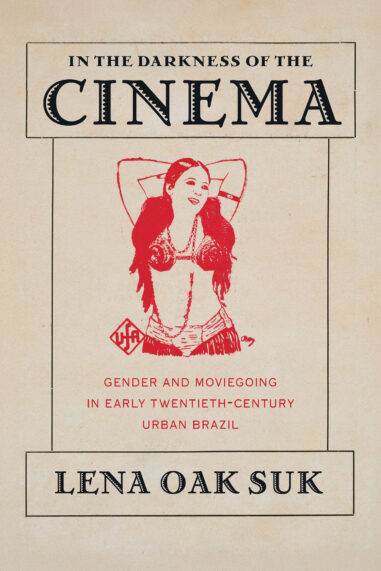
Paperback $35.00
Also available in Hardcover
Request Exam or Desk Copy. Request Review Copy
In the Darkness of the Cinema
Gender and Moviegoing in Early Twentieth-Century Urban Brazil
Suk’s In the Darkness of the Cinema excavates revealing traces of the gender, racial, and class ideologies that found expression in film and literature and shaped moviegoing habits and theater architecture in twentieth-century Rio de Janeiro and São Paulo. Suk offers an engaging account of how the movies transformed urban space and women’s participation in public life in Brazil.

